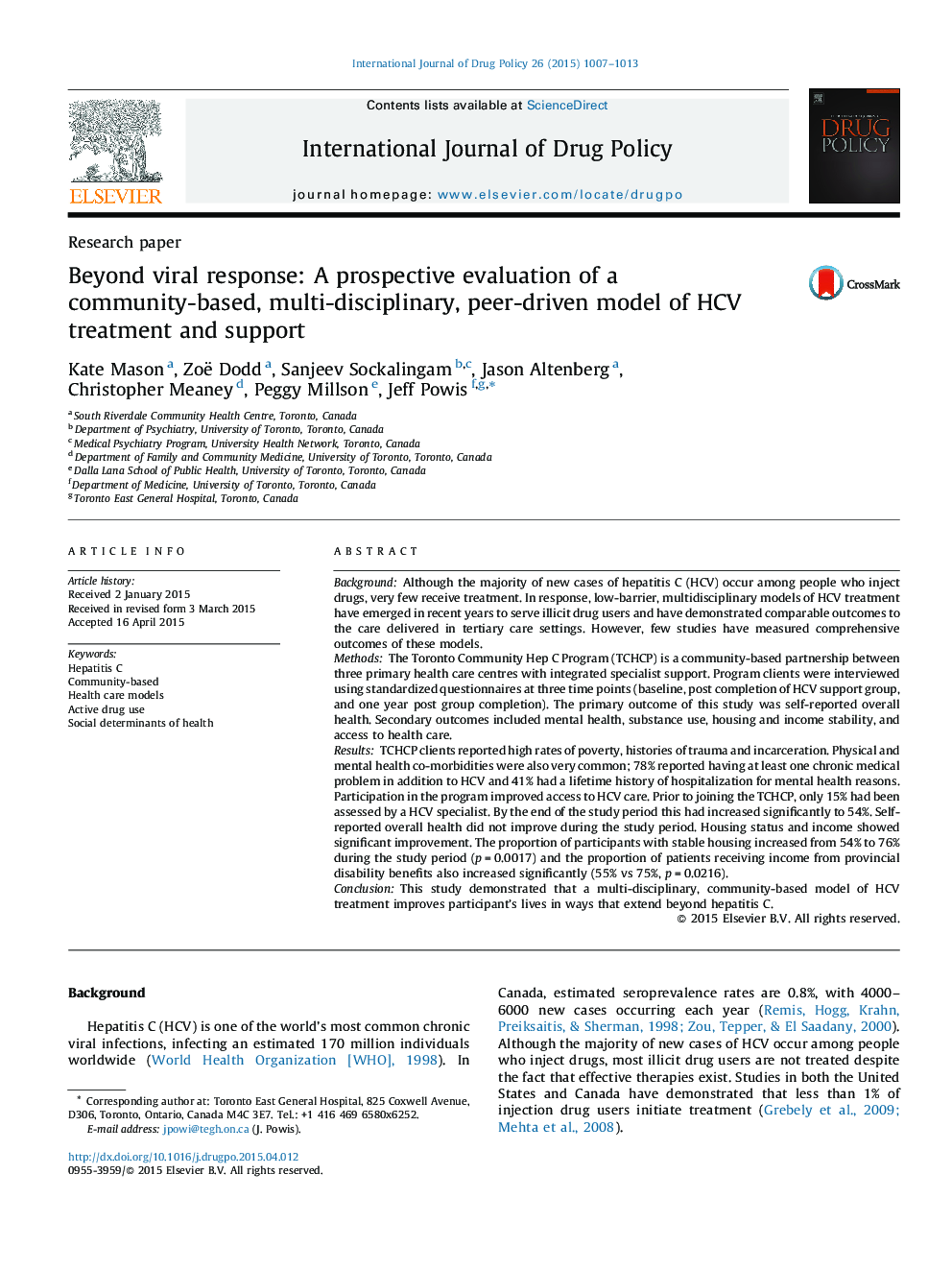| کد مقاله | کد نشریه | سال انتشار | مقاله انگلیسی | نسخه تمام متن |
|---|---|---|---|---|
| 1075020 | 1486281 | 2015 | 7 صفحه PDF | دانلود رایگان |

• We prospectively study a community-based hepatitis C (HCV) treatment program serving active drug users in Toronto, Canada.
• We examine HCV care outcomes and changes in psycho-social status, including social determinants of health and measures of well-being.
• Participation in the program improved access to HCV care.
• Housing stability and income supports improved significantly over time.
• Community-based models of HCV care have benefits beyond Hep C anti-viral treatment.
BackgroundAlthough the majority of new cases of hepatitis C (HCV) occur among people who inject drugs, very few receive treatment. In response, low-barrier, multidisciplinary models of HCV treatment have emerged in recent years to serve illicit drug users and have demonstrated comparable outcomes to the care delivered in tertiary care settings. However, few studies have measured comprehensive outcomes of these models.MethodsThe Toronto Community Hep C Program (TCHCP) is a community-based partnership between three primary health care centres with integrated specialist support. Program clients were interviewed using standardized questionnaires at three time points (baseline, post completion of HCV support group, and one year post group completion). The primary outcome of this study was self-reported overall health. Secondary outcomes included mental health, substance use, housing and income stability, and access to health care.ResultsTCHCP clients reported high rates of poverty, histories of trauma and incarceration. Physical and mental health co-morbidities were also very common; 78% reported having at least one chronic medical problem in addition to HCV and 41% had a lifetime history of hospitalization for mental health reasons. Participation in the program improved access to HCV care. Prior to joining the TCHCP, only 15% had been assessed by a HCV specialist. By the end of the study period this had increased significantly to 54%. Self-reported overall health did not improve during the study period. Housing status and income showed significant improvement. The proportion of participants with stable housing increased from 54% to 76% during the study period (p = 0.0017) and the proportion of patients receiving income from provincial disability benefits also increased significantly (55% vs 75%, p = 0.0216).ConclusionThis study demonstrated that a multi-disciplinary, community-based model of HCV treatment improves participant's lives in ways that extend beyond hepatitis C.
Journal: International Journal of Drug Policy - Volume 26, Issue 10, October 2015, Pages 1007–1013